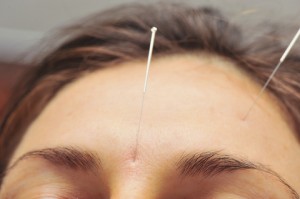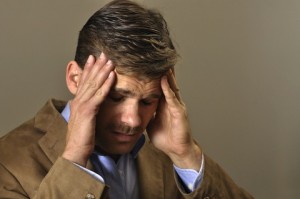Table of Contents
Dealing with chronic pain is a chore at best and agonizing at worst. Many of those who suffer from chronic or even short-term constant pain due to an accident or injury receive prescriptions for opiate pain medication that, in some cases, can lead to dependence and addiction as reported by the National Institute on Drug Abuse. The National Institute of Health’s Medline Plus information system indicates that tolerance to a drug occurs when you need a higher dose to achieve the same effects and is generally associated with addiction. If you’ve never had a problem with addiction in the past, you are less likely to become addicted when taking a prescribed drug according to the directions; however, if you have a predisposition to addiction due to your genes, depression, anxiety or factors in your environment, there is an increased risk.
When you are faced with pain every day, or even for short periods of time, consider using alternate methods to help control to pain. This can help you to either stay within the specific directions provided by your prescribing doctor, rather than taking what you might think is a harmless, extra dose of medication, or it can help you avoid dangerous-to-you prescriptions because of an existing addiction.
Just Relax…
According to the National Center for Complementary and Alternative Medicine, relaxation techniques have shown results for some kinds of chronic pain. Fibromyalgia, for instance, has been studied and relaxation shows promise for pain and fatigue associated with this condition. More research is necessary to find definitive results, however. Other studies have shown that relaxation may help when it comes to surgical pain or other pain in the abdomen.
For psychological pain, relaxation has proven a positive resource for depression and anxiety-related conditions, but more research is needed. Finally, for migraine headaches, the research has shown that for some, relaxation is even more effective than medication. The NCCAM is currently funding studies to look into the effects of relaxation on lower back pain as well.
Stress Can Have Physical Results
The American Psychological Association conducted a study and released the results in 2010 which measured, among other things, how individuals with either fair or poor health manifested their stress. The largest percentage of respondents stated they became angry or irritable. The next highest manifestation was fatigue and 30 percent reported muscle tension. Stress can also cause pain, according to the Mayo Clinic. Relaxation techniques can reduce stress and could help to manage pain resulting from stress as a result.
Get Moving
If possible, increase your physical activity and exercise to the best of your abilities. If you suffer from a chronic condition, such as arthritis, the thought of exercising may seem daunting. However, a study conducted in England and published by the Annals of the Rheumatic Diseases in 1998 showed significant improvement in arthritis pain with an exercise program that participants did at home with minimal training.
The Centers for Disease Control mentions several benefits of exercise for people who suffer from various chronic pain conditions, such as lupus, arthritis or fibromyalgia. These benefits are not limited to pain relief, but they all have to do with living a happier, healthier life, such as:
- Controlling diabetes

- Controlling heart disease
- Controlling obesity
- Increasing quality of life
- Increasing mobility
- Increasing function
- Improving mood
When you must deal with pain as a part of your daily life, it’s easy to use that pain as an excuse or reason to stop participating in the activities you once enjoyed. Exercise can help you regain some of the strength you may have lost and once again see yourself taking part in your life without the use of opiate medications.
Therapeutic Massage
According to the National Center for Complementary and Alternative Medicine, the reason that massages work to help relieve chronic pain symptoms is unknown. What is known is that they do work for many people. In fact, they include a recommendation from the American College of Physicians that doctors consider using complementary therapies, including relaxation, yoga, acupuncture and massage, for patients who are not responding to evidence-based treatments and protocols, such as prescription drugs.
One idea about how massage works is the “gate control theory.” This theory is one that some researchers use to suggest that massage can block pain signals from reaching the brain. Another theory is that stimulation in brain chemicals, serotonin or endorphins, can create change in the body that alleviates pain.
The types of pain that massages can help have not been narrowed down definitively, but studies show that massage can sometimes benefit:
- Low back pain
- Chronic neck pain
- Sports injuries
- Pain associated with depression or anxiety
- Pain and distress in cancer patients (currently undergoing studies)
Acupuncture: The Needles Go Where?
 According to the NCCAM, acupuncture has shown “promising evidence” that it can help relieve chronic pain for some conditions, including low back pain, arthritis and chronic headaches. According to this government agency, a National Health Interview Survey from 2007 found that 3.1 million people in the United States had used this ancient form of Chinese medicine in the year before the survey. Of that number 7 out of 10 were seeking relief from pain when they underwent the procedure.
According to the NCCAM, acupuncture has shown “promising evidence” that it can help relieve chronic pain for some conditions, including low back pain, arthritis and chronic headaches. According to this government agency, a National Health Interview Survey from 2007 found that 3.1 million people in the United States had used this ancient form of Chinese medicine in the year before the survey. Of that number 7 out of 10 were seeking relief from pain when they underwent the procedure.
Considered safe, acupuncture is based upon qi, or chi, an energy flow throughout the body. Certain lines, called meridians, connect various aspects of the physical and energetic self. Acupuncture places thin needles beneath the skin to stimulate and regulate the energy. In theory, this practice can control chronic pain; more research is underway.
Get Help With Pain Management
Whatever method you choose for controlling your chronic pain, keep in mind that alternative methods to powerful opiate drugs exist. When used in tandem with your overall pain management plan, in partnership with your medical provider, you may find more relief than you thought.
If you’d like more information on ways to manage your pain, feel free to contact us here at Axis. We are here 24 hours a day to take your call.

